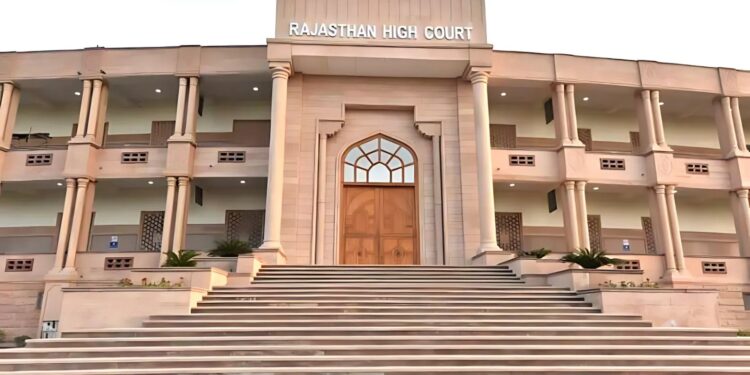The Rajasthan High Court recently dismissed a petition challenging the appointments of Additional Advocate Generals (AAGs) and law officers in the State, which were made through circulars dated February 12, 2024, and March 12, 2024. The petitioner, Ishwar Prasad, argued that the appointments were arbitrary, illegal, and in violation of established procedures and policies, including the Supreme Court’s decision in State of Punjab v. Brijeshwar Singh Chahal.
In its judgment, the Bench of Justice Shree Chandrashekhar and Justice Rekha Borana stated that the petition failed to provide any substantial evidence or specific legal arguments to demonstrate the ineligibility of the appointed law officers or the flaws in the appointments. The Court observed that the petitioner had yet to produce any records to show that the appointed individuals lacked the necessary qualifications or eligibility for their respective roles. “No record has been produced to show that any of the law officers were ineligible, nor was it shown how the appointments were flawed in law or how the appointees were favored,” the Court noted.
The petition focused on the claim that the appointments were made arbitrarily, disregarding the Brijeshwar Singh Chahal judgment, in which the Supreme Court had set guidelines for the appointment of public prosecutors to prevent arbitrary actions by the State. Prasad argued that similar checks should apply to the appointment of state law officers, especially since such appointments were allegedly made without public advertisements, due process, or adherence to statutory regulations. Furthermore, the petitioner alleged that the appointments violated the Rajasthan Law and Legal Affairs Department Manual, 1999, and the Rajasthan State Litigation Policy, 2018, due to the absence of competitive procedures and reservations for certain classes.
In response, the State government defended the appointments, arguing that the law officers were not employees of the government, as there was no master-servant relationship or salary payments involved. The State clarified that these roles were contractual and professional, made in consultation with the Advocate General, and in accordance with established practice. The government also pointed out that similar appointments had been made in 2013 and 2018 following state elections, with no objections raised by the petitioner at that time.
The State further argued that the petitioner’s failure to disclose material facts and provide the correct legal position weakened the petition. Additionally, the State highlighted that the Brijeshwar Singh Chahal ruling had been reconsidered in subsequent Supreme Court cases, such as the State of U.P. v. Ajay Kumar Sharma. It was no longer relevant in the present context.
After considering all arguments, the Court concluded that the petitioner’s claims were vague and unsubstantiated. The Court emphasized that mere suggestions without concrete evidence could not serve as a basis for challenging the appointments. “Even if some data were provided, it would not have been sufficient to question the appointments made through the circulars dated February 12, 2024, and March 1, 2024,” the Court stated. It also ruled that the appointments complied with all legal requirements and that the petitioner’s request for mandamus or certiorari could not be granted based on unproven allegations.
The Court ultimately dismissed the petition, upholding the legality of the appointments and affirming that the State had followed the correct procedures. The ruling reinforces the principle that judicial challenges to appointments must be based on substantial and credible evidence, not on vague or unsupported claims.
Ishwar Prasad represented himself in the case, while Senior Advocate MS Singhvi and Advocate KS Lodha appeared on behalf of the State. The Court’s decision marks a significant development in the interpretation of appointment procedures for legal officers in the State, emphasizing transparency and adherence to established norms.

















